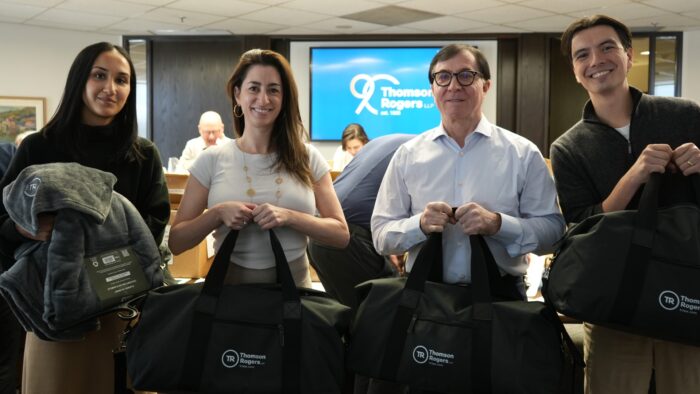Law Times: Ruling on CPP a win for accident victims
Author(s): Deanna S. Gilbert
August 22, 2017
A Supreme Court of Canada decision that ruled the Canada Pension Plan is not a policy of insurance is a win for accident victims across the country, says a Toronto lawyer.
In Sabean v. Portage La Prairie Mutual Insurance Co., a unanimous seven-judge panel of the nation’s top court ruled the insurer could not deduct a Nova Scotia man’s CPP disability payments from his excess insurance payments according to the province’s standard SEF 44 endorsement.
The endorsement, also known in other provinces as a family protection endorsement, is meant to cover drivers when they’re injured in a crash caused by an underinsured driver, but it allows insurance companies to deduct future payments from a “policy of insurance providing disability benefits.”
The insurer claimed this should include the CPP, but Supreme Court Justice Andromache Karakatsanis, writing for the court, said that lay people reading the endorsement “would understand a ‘policy of insurance’ to mean an optional, private insurance contract and not a mandatory statutory scheme such as the CPP.
“Thus, future CPP disability benefits do not reduce the amount payable by the insurer under the Endorsement,” the judge added.
Deanna Gilbert, partner at Toronto personal injury firm Thomson Rogers Lawyers, says the decision has significance nationwide, since provinces with private insurance systems use virtually identical wording in excess coverage policies. That includes Ontario, where its version of the family protection endorsement is known as OPCF-44R.
“It’s not one of the Supreme Court’s more complex decisions, but it is a very important one because of its wide applicability,” Gilbert says. Ontario accident victims should be especially grateful for the decision, she says, since it bucks recent trends in the personal injury field.
“In the last few years, we’ve seen more and more barriers put in front of accident victims seeking fair compensation,” Gilbert says, pointing in particular to controversial changes to the accident benefits system enacted last year. Since June 2016, catastrophically injured victims have seen their combined attendant care and medical and rehabilitation services limited to $1 million, down from the previous cap of $2 million.
Non-catastrophically injured victims, meanwhile, also saw their maximum combined benefits significantly cut.
“There’s less and less money available to injured folks these days, so I think the Supreme Court made the right decision removing this hurdle,” Gilbert says.
The Supreme Court case dates back to a 2004 motor vehicle crash in Bridgewater, N.S. that left Andrew Sabean with injuries. Nine years later, a jury awarded him $465,000, but the at-fault driver only had enough insurance coverage to pay $382,000.
Sabean turned to his own insurer to make up the $83,000 difference, but he resorted to the courts when he was told Portage La Prairie considered CPP a policy of insurance for the purposes of its family protection endorsement and that the insurance company intended to deduct his future disability benefits payments from the total.
If you have any questions, please contact, personal injury lawyer Deanna Gilbert at 416-868-3205 or by EMAIL.
Related posts by Deanna Gilbert:
https://trlaw.com/news/cpp-not-a-policy-of-insurance-per-opcf-44r/
Share this




